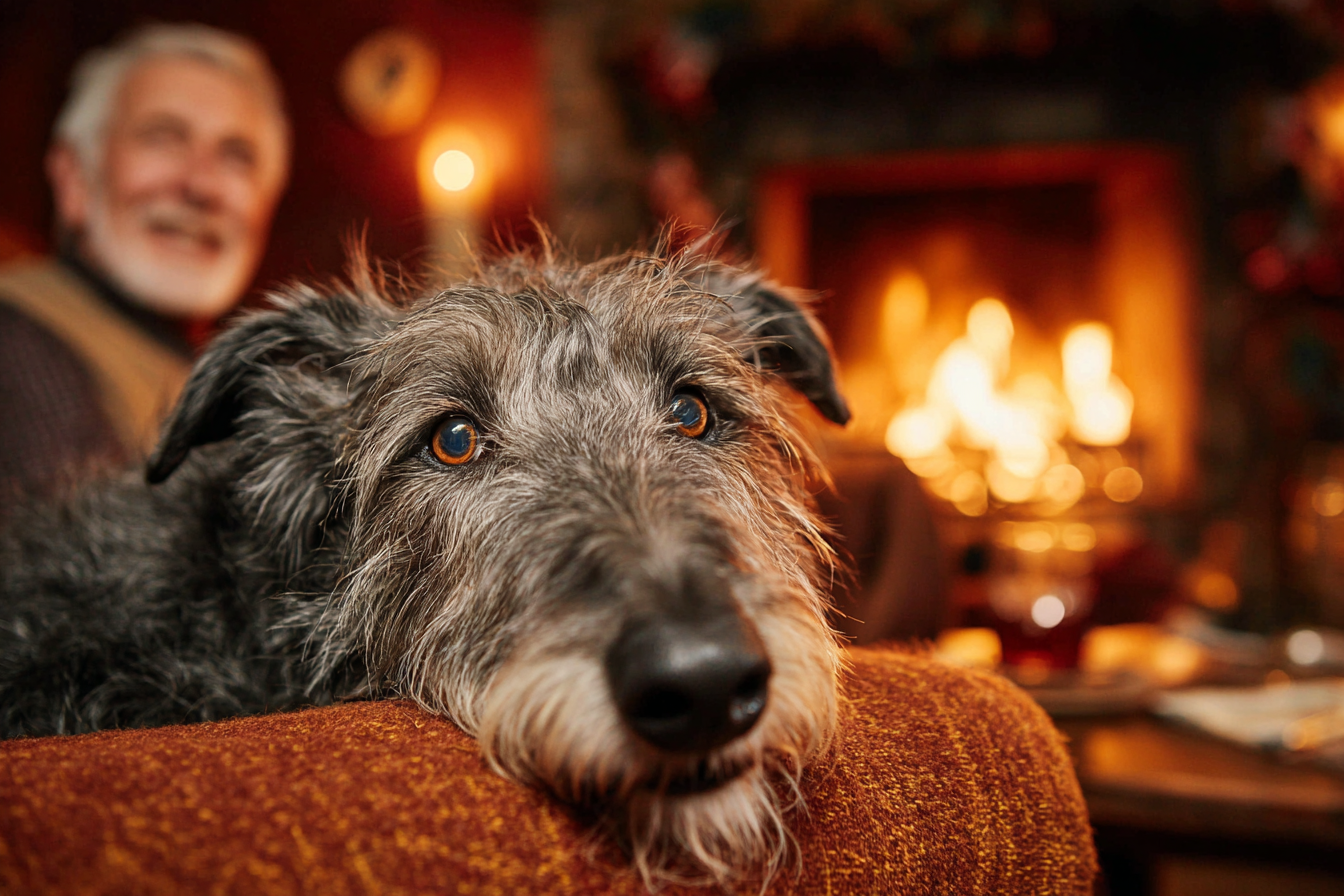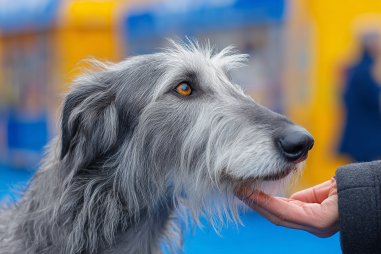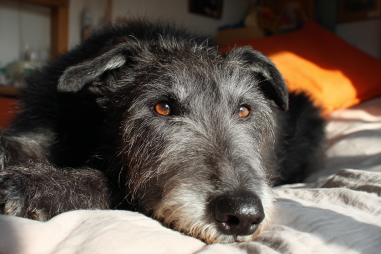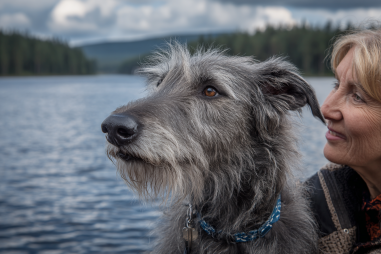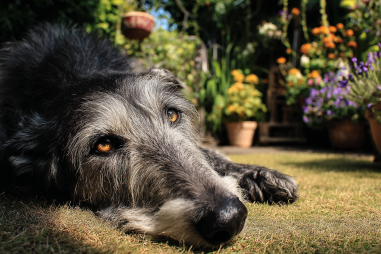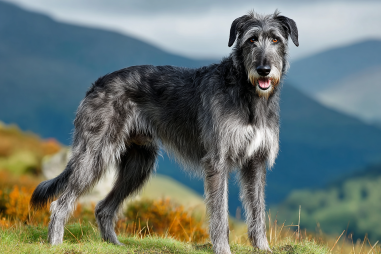If you’re considering bringing a Scottish Deerhound into your family or already have one, you might wonder how long this graceful and gentle giant typically lives. Known for their impressive stature and kind-hearted nature, Scottish Deerhounds are wonderful companions, and understanding their lifespan and health needs can help your furry friend enjoy a longer, happier life. In this article, we’ll explore the typical lifespan of Scottish Deerhounds, key factors that affect their longevity, and practical tips on care, nutrition, and recognizing signs of aging to help you give your loyal companion the best life possible.
Typical Lifespan of Scottish Deerhounds
Scottish Deerhounds generally live between 8 to 11 years. Compared to many other medium-to-large dog breeds, their lifespan is somewhat on the shorter side, which is typical for large breeds. These dogs grow quickly and mature to be among the tallest hound breeds, often weighing between 75 to 110 pounds, which can influence their overall lifespan. While some Deerhounds may live beyond 11 years, 8 to 10 years is a realistic expectation for most.
Factors Affecting Longevity
The lifespan of a Scottish Deerhound can be affected by various factors including genetics, environment, diet, and overall health care. Here are some major influences to consider:
- Genetics: Just like humans, inherent genetic traits have a significant impact on lifespan. Responsible breeders who focus on health testing and avoiding hereditary diseases can greatly contribute to longer-lived Deerhounds.
- Size and Growth Rate: Large breeds tend to age faster than smaller breeds. Rapid growth during their puppy stage can sometimes lead to joint problems or other complications later in life.
- Medical Conditions: Scottish Deerhounds can be predisposed to certain health issues like heart disease, bloat (gastric torsion), and bone cancer, all of which can shorten lifespan if not monitored or treated promptly.
- Exercise and Lifestyle: Maintaining an appropriate exercise routine without overexertion can help keep your Deerhound healthy. Sedentary lifestyles may contribute to obesity and related health problems.
- Preventative Care: Regular veterinary visits and early detection of health issues play a crucial role in prolonging life.
Preventative Health Care
Working closely with a veterinarian can help spot health problems before they become serious and ensure your Scottish Deerhound maintains optimum health. Here’s what preventative care typically involves:
- Regular Vet Check-ups: At least annual, and more frequently for older dogs. Blood work, heart checks, and dental exams can catch early problems.
- Vaccinations and Parasite Control: Keeping immunizations current and controlling fleas, ticks, and worms helps prevent common diseases.
- Screening for Breed-Specific Diseases: Heart disease such as dilated cardiomyopathy, bloat risks, hip dysplasia, and bone cancers should be discussed with your vet.
- Dental Care: Good oral hygiene can prevent infections that might spread to other organs later.
Nutrition and Lifestyle Tips
A balanced diet tailored to meet the unique needs of a Scottish Deerhound is critical for their health and longevity. Because of their large size and sometimes sensitive digestion, here are some feeding and lifestyle recommendations:
- Quality Diet: Provide a high-quality dog food that contains the right balance of protein, fat, and essential nutrients to support joint health and maintain a lean body weight.
- Avoid Overfeeding: Obesity can cause stress on joints and organs. Monitor weight carefully and adjust diet as needed.
- Feeding Schedule: To reduce the risk of bloat, feed smaller, more frequent meals rather than one large meal per day, and avoid vigorous exercise immediately before and after eating.
- Regular Exercise: Scottish Deerhounds need moderate daily exercise to stay fit without overtaxing their joints. Regular walks and safe, off-leash runs in fenced areas are ideal.
- Mental Stimulation: Engage their gentle but intelligent nature with training, puzzle toys, and social interaction to keep their minds sharp.
Common Age-Related Ailments
As Scottish Deerhounds age, they may encounter specific health challenges more frequently. Knowing what to watch for helps prepare for early treatment and better comfort:
- Osteoarthritis: Joint degeneration is common as their large frames take a toll over time, leading to stiffness and discomfort.
- Heart Conditions: Age-related heart disease, including cardiomyopathy, can impact their quality of life.
- Osteosarcoma (Bone Cancer): Unfortunately, large breeds like Deerhounds have a higher incidence of certain cancers, especially bone tumors.
- Bloat: Although more acute, bloat is a life-threatening condition that can happen to even senior Deerhounds and requires immediate veterinary attention.
- Dental Problems: Dental disease can become more prevalent with age and should be managed through regular cleanings and daily care.
Signs of Aging
Recognizing signs of aging in your Scottish Deerhound allows you to adapt their care and make their senior years comfortable and loving:
- Decreased Activity: Your Deerhound may become less active or more tired after exercise.
- Changes in Mobility: Difficulty standing, climbing stairs, or hesitancy to jump can signal joint issues.
- Weight Fluctuations: Either weight loss due to illness or unwanted gain from inactivity can be noticeable.
- Changes in Appetite or Drinking Habits: Reduced eating or increased thirst may indicate underlying health issues.
- Cognitive Changes: Signs of confusion, disorientation, or altered sleep patterns could indicate canine cognitive dysfunction (doggy dementia).
Regular vet checkups can monitor these changes and help modify your dog’s lifestyle to suit their evolving needs.
Helping Your Scottish Deerhound Live Longer and Healthier
While we can’t stop the clock, providing the best care possible can extend your Scottish Deerhound’s lifespan and improve their quality of life. Prioritize a balanced diet, regular vet visits, appropriate exercise, and an environment full of love and mental stimulation. By staying observant of early signs of aging or disease and acting quickly with veterinary advice, you’ll give your long-legged companion the best chance for many vibrant years by your side.

